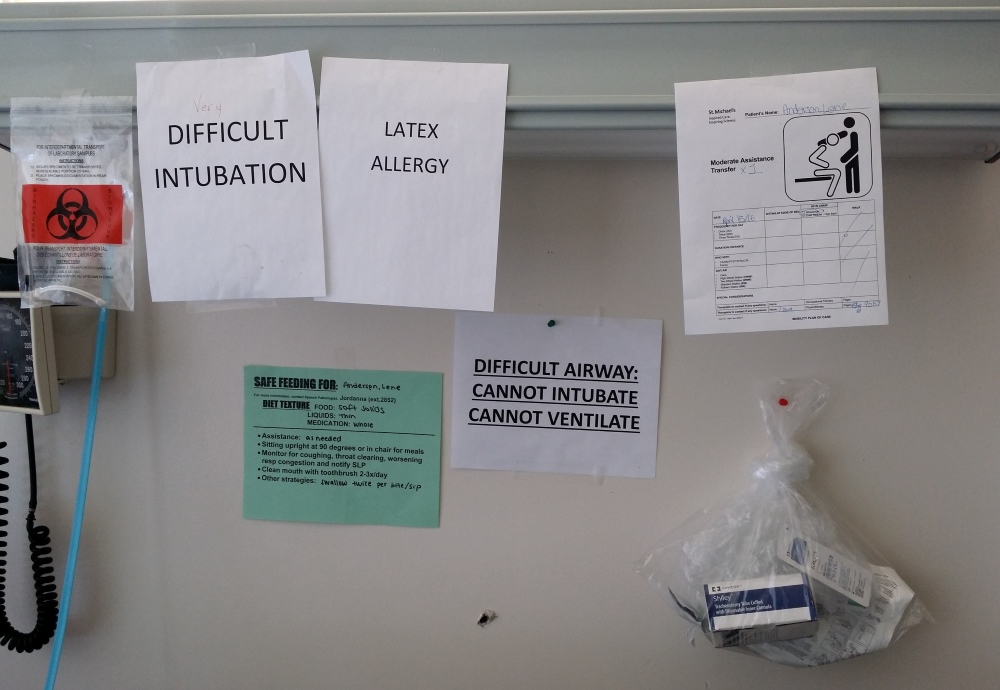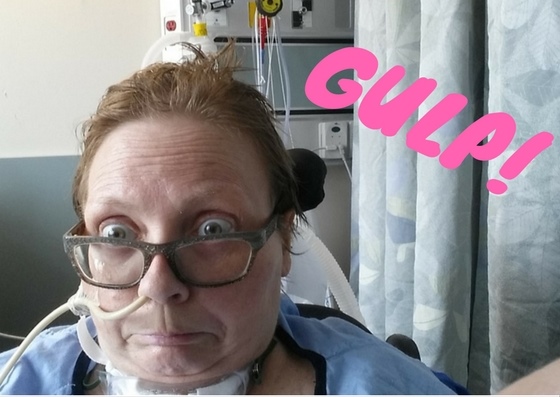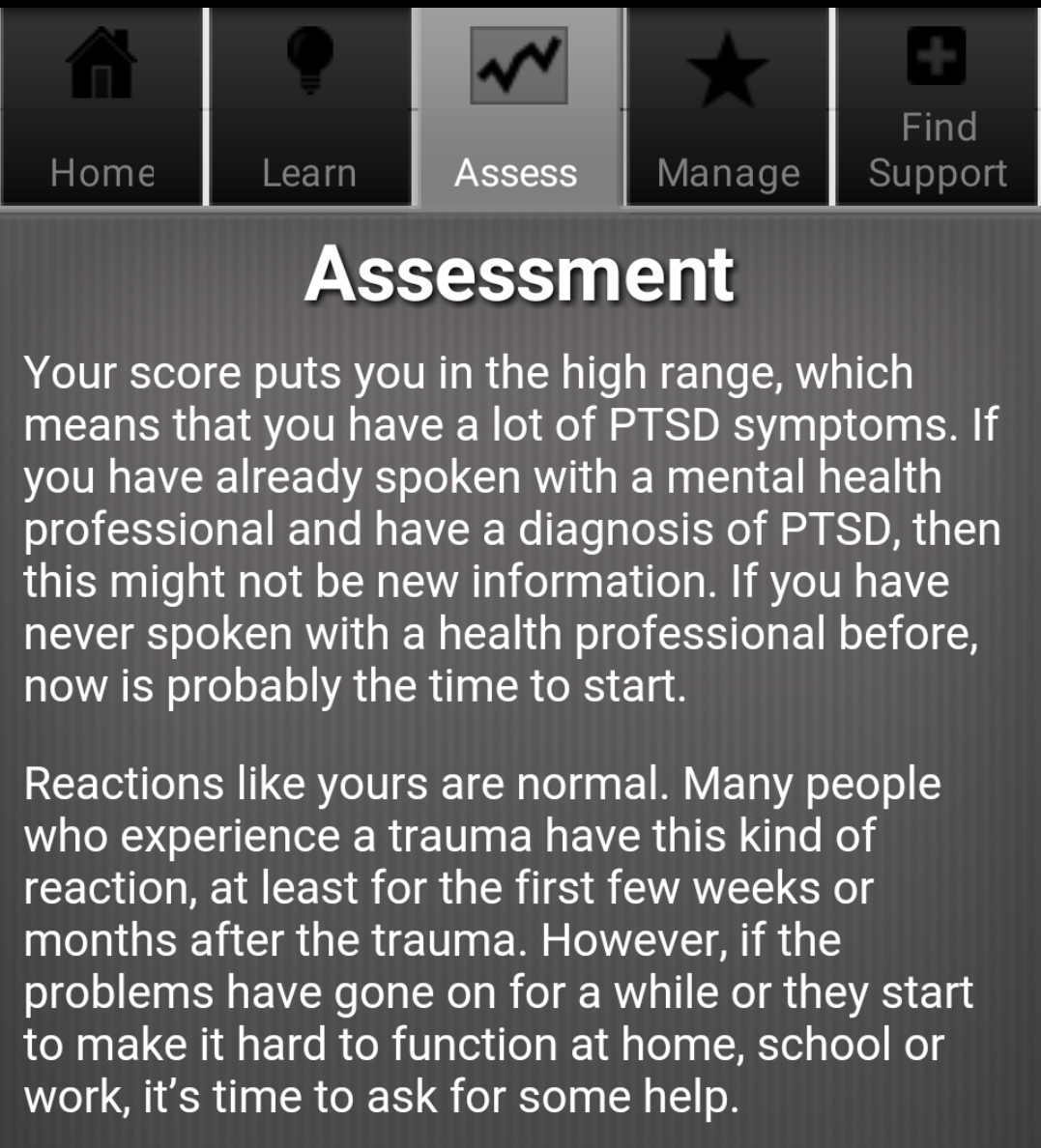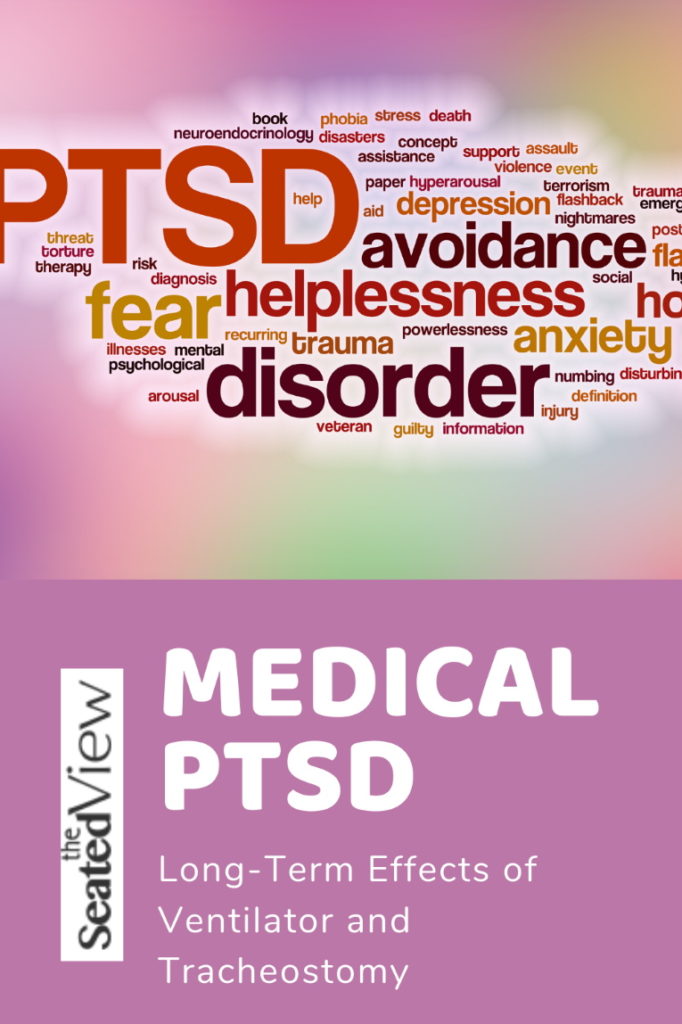Medical PTSD and Long-Term Effects of Ventilator and Tracheostomy

Updated April, 2020
Rheumatologist: “how are you feeling? ICU PTSD can happen after such an experience.”
Me: “I’m fine.”
This conversation occurred two weeks after I’d been discharged from the hospital after my medical adventure. And the very next day, my GP brandished a pneumonia vaccine and I burst into tears, terrified that it would give me pneumonia.
I am not usually a burster.
Still, PTSD sounded like an awfully big word for what I was feeling. I shied away from doing any actual research, instead relying on my vast experience as a moviegoer. I could certainly understand why soldiers would experience PTSD, but I’d just been in the hospital. Right?
Eight months later it’s very clear that something’s gone a little wonky.
The physical and the terror
My voice still got strained very easily. Not only did I often sound like a frog, but there are other frequent symptoms. Pain when I talked, a lump in my throat, and I developed a cough at the drop of a hat (still do, years later).
And it freaked me out. Except that term sounds a little mild to describe my reaction. Intense anxiety. Panic attacks. Terror.

The signs behind my hospital bed
I think it had a lot to do with not remembering. My last memory before waking up with a tracheostomy in the ICU was feeling like I was coming down with something while visiting the museum. I have no memory of getting the flu, then pneumonia, going to emerg, being admitted into isolation, moving to the ICU, and during that time having more and more trouble breathing until the event that led to being intubated and put on a ventilator. I have no memory of being extubated and my vocal cords swelling. I just heard repeatedly from the hospital staff who’d been present how scary it was, and about the CPR, and the flatline.
Don’t get me wrong, I don’t want to remember any of it. It sounds perfectly awful and having this blank space in my memory is a distinct blessing. But it also contributed to the anxiety. Because if these things could happen once, who’s to say they won’t happen again? And when my throat hurt when I talk, when I felt like there’s a lump in my throat — and know it’s one of the symptoms of issues with your vocal cords — and my voice got strained also at the drop of a hat, how close was I to that edge?

And did you know it is next to impossible to find any information on the Internet about the aftermath of being ventilated/having a tracheostomy?
Triggered
I went to my dentist for the crown prep on one of the teeth that was broken during the CPR. The night before, I dreamt I had trouble breathing and was about to be intubated. In a concentration camp.
“You were triggered,” my friend Laurie said when I told her about it.
Triggered??
A couple of months ago I finally admitted to myself that I need help in learning to de-escalate my anxiety when it hits (which is often). My doctor got me on the waitlist for a program in cognitive processing therapy and recommended an app called PTSD Coach, published by the Canadian military. I checked it out, answered the 17-question assessment. And:

Huh.
Obviously, the app is not a mental health professional, but it did surprise me. And then I started thinking that still having this much anxiety half a year after the discharge from the hospital indicated that I while I slowly move up at the waitlist for the counselling, something else was needed. So I booked a follow-up appointment with the ENT clinic.

The wonderful feeling of normal
I saw a really nice doctor who really listened. And who, after I rattled off all my symptoms and resulting anxiety, said these wonderful words: “of course you feel like that. This is normal to us, but completely new to you.”
And in that one short sentence, he normalized my experience. Then he did it one better by pointing out that there’d been a lot of forceful rooting around in my throat and it was no wonder that my vocal cords were still offended.
And I could feel every part of me relax, including my throat.
He also scoped my vocal cords very thoroughly. They looked fine and as long as my RA meds are working, he didn’t think there was any need to worry about them swelling out of the blue. Then he diagnosed me with MTD.
I had muscle tension dysphonia, or voice strain due to muscle tension, in my case likely related to anxiety. I got a referral for physiotherapy for my vocal cords with a speech pathologist. Who also happens to be a psychotherapist. It would cost money, but it’d be worth it.
I’ve been much less anxious about my weird throat symptoms since. Which is an improvement. And eventually, I got the help I needed to cope when I’m triggered.
Which still happens, even several years later and after two rounds of therapy. Because PTSD is one of those chronic things, always looking in the background and needing frequent attention during times of stress. But it is possible to manage it.
This post is for that person who is freaked out about all the aftereffects of having been on a ventilator or had a tracheostomy and can’t find any information about it. Please know that your symptoms are likely normal and it can take quite a while for everything to settle down again. If your ENT doctor did not schedule a follow-up, make the call yourself so you can get some answers. And if you’re dealing with anxiety, talk to your doctor about counselling.
You had a very scary experience. Facing that, processing that is important. Because you need to be able to get on with this life of yours, rather than being stuck in the nightmare of almost losing it.
Tag: ARDS, biologics, complications, ICU, influenza, medical PTSD, PTSD, rheumatoid arthritis, rheumatoid disease, tracheostomy, ventilator
3 Comments
Read More
Discover what else I've been writing about...
















Love you. Glad you are on the road to getting better.
Kirsten
We are so fortunate to have you as part of our community Lene. I am glad you found assistance with PTSD. As a guy who did therapy for several years, I can say it helped me a great deal. I hope you relief from the understandable anxiety.
I had to go back and reread this Lene. I am so, so glad that your are ok and that you can overcome the fear of recurrence. You are a very strong woman. You got thus girl.